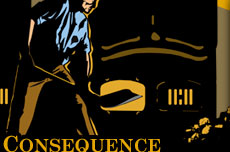After the tragic events at Italian Hall, the strike took on a gloomy character. The tide was turned and mining companies began to foresee an end to the strike. A gang of Citizens’ Alliance members forcibly removed WFM President Charles Moyer at gunpoint from his Hancock hotel and dumped him on a train to Chicago. The union attempted to rescue the strike, calling for and getting a Congressional investigation on conditions in the Copper Country, but by then the strike was essentially broken. Mining companies did not recognize the WFM and widely implemented the one-man drill. Some concessions were later given in wages, hours, and working conditions, but many historians argue that these were inevitable Progressive Era reforms. The WFM was also “broke” – it sank millions of dollars into organizing Michigan copper workers, but was chased out of the Copper Country. In 1916, it sought distance from these failures by renaming itself the International Union of Mine, Mill, and Smelter Workers. |


